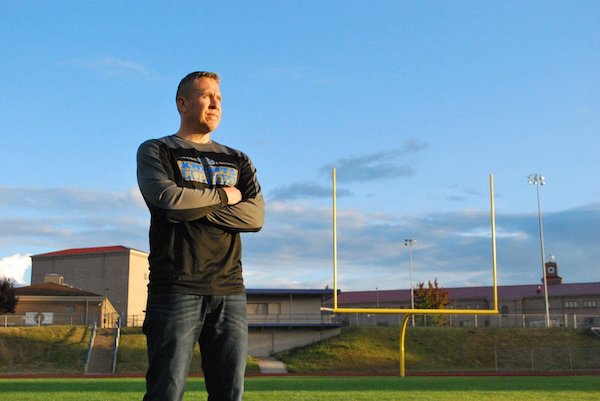
WASHINGTON — Joseph Kennedy, a high school assistant football coach who was placed on leave eight years ago for praying on the field with players after games, won a nearly $2 million settlement and has been reinstated to his former coaching role at Bremerton High School, outside of Seattle.
In early March, the Bremerton School District agreed to the settlement of $1,775,000 for Kennedy’s attorney fees, and the school board approved this decision a few weeks later.
“We are thrilled that Bremerton and Coach Kennedy are back together, and we hope they go undefeated,” Hiram Sasser, executive general counsel at First Liberty Institute, the Texas law firm that represented Kennedy, said about the coach’s return to his former job.
Last year, Bremerton’s case went to the Supreme Court, where the justices ruled that he had the right to pray on the football field after games because these prayers were private speech and did not represent the public school’s endorsement of religion.
“The Constitution and the best of our traditions counsel mutual respect and tolerance, not censorship and suppression, for religious and nonreligious views alike,” said the court’s majority opinion.
It also emphasized that “respect for religious expressions is indispensable to life in a free and diverse republic — whether those expressions take place in a sanctuary or on a field.”
Kennedy claimed that his postgame prayers on the field cost him his job. He said he had been told by school district officials to stop praying on the 50-yard line, and he refused. When his contract was not renewed, he sued the school for violating his First Amendment rights.
During oral arguments at the Supreme Court, several justices emphasized that private speech is still private, and protected by the First Amendment, even if it takes place on public grounds. But others pointed out that private prayer on the field also could seem coercive because players could feel like they should participate.
An attorney for the school district argued that the coach’s prayers violated the Constitution’s establishment clause, which is often cited to prohibit prayer in public schools.
After the court’s decision, New York Cardinal Timothy Dolan, chairman of the U.S. Conference of Catholic Bishops’ Committee for Religious Liberty, said the ruling “to prevent the forced expulsion of voluntary prayer from public life is a major victory.”
